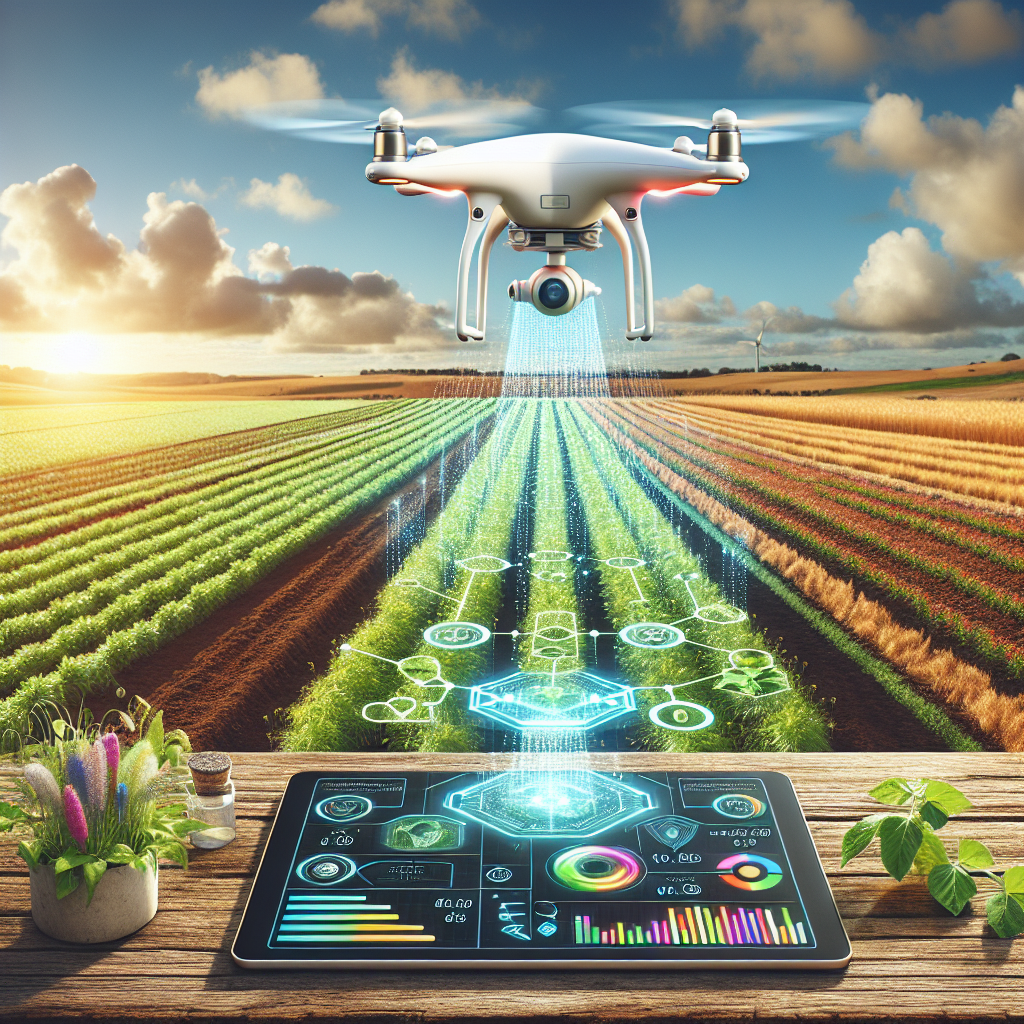In recent years, the agriculture industry has been rapidly adopting new technologies to increase efficiency, productivity, and sustainability. One of the most promising technologies being integrated into agriculture is Artificial Intelligence (AI). AI has the potential to revolutionize the way we grow crops, raise livestock, and manage agricultural operations.
AI in agriculture involves the use of advanced algorithms and machine learning techniques to analyze data, make predictions, and automate tasks. By leveraging AI, farmers can make more informed decisions, optimize resource use, and improve overall yields. In this article, we will explore the various applications of AI in smart agriculture and how they are transforming the industry.
1. Precision Agriculture
Precision agriculture is a farming management concept that uses AI and other technologies to optimize crop production. AI algorithms can analyze data from sensors, satellites, and drones to create detailed maps of fields, identify areas of concern, and provide recommendations for optimizing planting, watering, and fertilizing practices. By using AI for precision agriculture, farmers can reduce waste, increase yields, and improve the overall health of their crops.
2. Crop Monitoring
AI-powered image recognition and computer vision technologies are being used to monitor crops in real-time. Drones equipped with cameras can fly over fields and capture high-resolution images that are then analyzed by AI algorithms to detect pests, diseases, and other issues. By identifying problems early, farmers can take corrective action before they escalate, leading to healthier crops and higher yields.
3. Predictive Analytics
AI can analyze historical data on weather patterns, soil conditions, crop yields, and other variables to make predictions about future outcomes. By using predictive analytics, farmers can anticipate trends, identify potential risks, and make informed decisions about when to plant, water, and harvest their crops. This can help optimize resource use, reduce losses, and improve overall profitability.
4. Livestock Management
AI is also being used to monitor and manage livestock. Sensors can track the health and behavior of animals, detecting signs of illness or distress early on. AI algorithms can analyze this data to provide insights into the well-being of the animals and recommend appropriate interventions. By using AI for livestock management, farmers can ensure the health and welfare of their animals while maximizing productivity.
5. Supply Chain Optimization
AI can help optimize the entire agricultural supply chain, from production to distribution. By analyzing data on crop yields, market demand, transportation costs, and other factors, AI algorithms can provide recommendations for how to best allocate resources, manage inventory, and deliver products to customers. This can help reduce waste, improve efficiency, and increase profitability throughout the supply chain.
FAQs:
Q: How is AI different from traditional farming methods?
A: AI allows farmers to analyze vast amounts of data and make more informed decisions about how to manage their crops and livestock. Traditional farming methods rely on manual observation and experience, whereas AI uses advanced algorithms and machine learning to provide insights and recommendations based on data.
Q: Is AI expensive to implement in agriculture?
A: While the initial cost of implementing AI technology in agriculture can be significant, the long-term benefits in terms of increased productivity, efficiency, and sustainability can outweigh the upfront investment. Many farmers are finding that the ROI of AI in agriculture is well worth the cost.
Q: Can small-scale farmers benefit from AI technology?
A: Yes, AI technology can be adapted to suit the needs of small-scale farmers. There are a growing number of affordable AI solutions designed specifically for small farms, allowing them to take advantage of the benefits of AI in agriculture.
Q: Is AI in agriculture environmentally friendly?
A: Yes, AI in agriculture can help reduce the environmental impact of farming by optimizing resource use, reducing waste, and minimizing the use of pesticides and fertilizers. By making farming more efficient and sustainable, AI technology can help protect the environment for future generations.
In conclusion, AI is transforming the agriculture industry by enabling farmers to make more informed decisions, optimize resource use, and improve overall productivity. The applications of AI in smart agriculture are diverse and far-reaching, from precision agriculture and crop monitoring to livestock management and supply chain optimization. As AI technology continues to advance, we can expect to see even greater benefits for farmers, consumers, and the environment.

